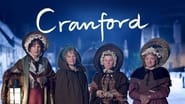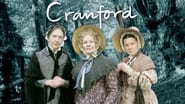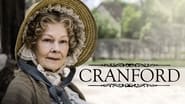IslandGuru
Who payed the critics
Spoonixel
Amateur movie with Big budget
HottWwjdIam
There is just so much movie here. For some it may be too much. But in the same secretly sarcastic way most telemarketers say the phrase, the title of this one is particularly apt.
Fairaher
The film makes a home in your brain and the only cure is to see it again.
Casey Smith
This series was recommended to me because I loved the BBC adaptations of Bleak House and North and South. It is a very high-quality production, but the story is pure fluff and lacks any substance. I've never read the books, but based on this series I would assume that, when they were written, they were pretty commonplace light reading. Someone else here described this as a "soap opera," and I completely agree. It's a nice cute series of stories, but contains nothing really interesting. In particular, the romance between Dr. Harrison and Sophie Hutton couldn't have been more boring and predictable, watching any of THAT was a complete waste of time.
ceallaig-1
I don't know when there has been such a gathering of female talent, of all generations, as this production was blessed with. The Sirs tend to get most of the limelight, but as the song says, there is nothing like a Dame -- in this case Dames Judi Dench (a longtime favorite) and Eileen Atkins (not enough seen on screen, and always a pleasure) These two great ladies provide the linchpin for the adaptation of Elizabeth Gaskill's works, here collectively presented as "Cranford". The town arbiter of decorum and propriety, Miss Deborah (Atkins) seems at first to be a severe stick of a woman, but proves to have more heart than one might expect, and ends up rather lovable in her own way. Miss Matty (Dench), Deborah's sister, is quieter, more timid, and used to being ruled by her elder sister, but possesses more backbone than even she knew she had. Add to this the likes of Imelda Staunton as neighborhood busybody and town crier Miss Pole (hilarious bit near the beginning where the town doctor uses her to disseminate news), Francesca Annis as local aristocrat Lady Ludlow, Julia Salawha as newcomer Jessie Brown (with her own romantic secrets)and Barbara Flynn as affluent (and wants the world to know about it) Miss Jameison, a 'chick flick' doesn't get much better than this. For those who have run out of Jane Austen adaptations, or just if you want a superior costume drama with a liberal dose of comedy and a bit of romance, Cranford is the place to visit.
Eowyn1967
The series lack historical sense and is a typical effort of reworking 19th century themes in order to make them more palatable to 21st century taste. But why not stick to adapting contemporary fiction then? First the short-story "Lady Ludlow" takes place much earlier than "Cranford", in fact during the French Revolution. It's one of the "historical" works of Mrs Gaskell. Besides this, the character Lady Ludlow is already old-fashioned for those times, particularly in her opposition to "lower classes" learning to read. The short-story is both full of light irony (very Austen-like) and pathos (though a long melodramatic story within the story about the French Revolution mars it a little to my mind). But Lady Ludlow becomes annoying in the TV adaptation, because she's no longer in her historical time but transported to a much later time, at least 50 years later, where her prejudices become utterly ridiculous. She and the other people related to her tale seem artificially grafted into Cranford and simply do not belong.As for "Mr Harrison's Confessions" which as a short-story is absolutely hilarious, I find the series only produced a pale imitation of it, only mildly amusing at times. Besides, if, in tone and period, it blends more easily with "Cranford" than "Lady Ludlow", Sophie's characterisation and her father's underwent a great change to make them acceptable to 21st century prejudices. For instance, since he's a clergyman, he has to be bland and cold in the series, yet he is presented as a sort of worthy example in the short-story: a type of the upright and balanced Christian who sometimes appears in Gaskell's fiction. In the short-story, the death of Walter is very moving and depicted as the death of a Christian child with Christian hope. Why was this turned into another occasion for questioning God's mercy and will in classic 21st-century fashion? This shows a total incapacity to even begin to understand the Christian beliefs of the time (which are still held by some). What a pity adapters cannot see that 21st-century pet theories are in no way superior (or more logical or more consistent or indeed more interesting) than those of previous times.
purplebeetlewings
I am at heart an Austen girl, and I will admit that I find that the BBC's adaptations often far outrank any other, and Cranford was no exception. I have yet to read the books but have dropped heavy hints to Santa. The BBC has, if I'm honest disappointed me recently, but for one Cranford' quality programme I can almost forgive for everything else. Pure excellence. Cranford had me in tears for every episode, and often begging for the happy ending which given the often dark nature of the narrative was unlikely to come, and often didn't. Wonderful performances, from the Sirs and Dames, down to the youngster who played Harry Gregson, and with wonderful characterisation, which made the characters lovable and known and even gives unseen characters and histories unseen depths which are sometimes unavoidably and sadly missed in period pieces. A wonderful job. One request, may 'Cranford' never meet Hollywood, they won't be able to do it better than the BBC! Does anyone know when it comes out on DVD?



